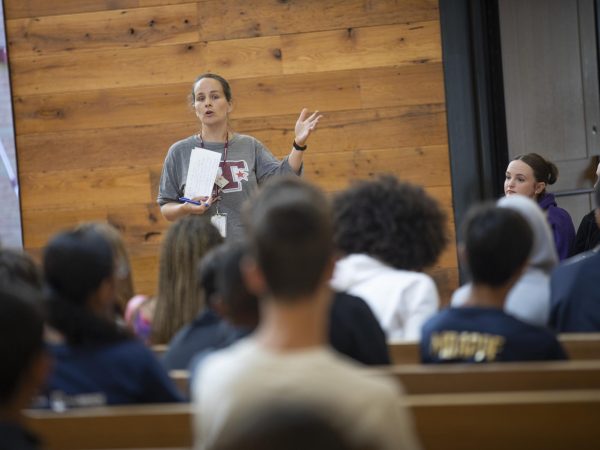AP Courses Inhibit Learning
Advanced Placement courses are created and run by the College Board, a non-profit organization designed to prepare high school students for college level courses. After students take an AP course, they are evaluated on a standardized exam in May that is graded on a scale of one to five, a five representing A-level college work. At some colleges, students can use scores of three or higher as college credits, allowing them to avoid taking certain classes in college. However, some colleges only accept scores of four and five toward college credit.
There are currently 38 different AP courses covering 22 subjects, and over one and a half million students take an AP exam annually. Students can start taking AP courses junior year, but students may also take an AP exam without having taken the corresponding AP level course. In 2018, Sidwell committed to stop offering AP courses by 2022. Given that AP exams hinder learning and are unable to accurately assess students’ understanding, this is the correct decision.
Compared to a series of assessments, AP exams are ineffective at evaluating students’ comprehension of subject material. Instead of quizzes and tests that periodically monitor student progress, AP courses culminate in a two to three hour exam at the end of the year. This single exam puts extreme pressure on students, as all their hours of work and studying amount to one test. According to NYU, too much stress on students has been proven to reduce performance. Therefore, an AP exam is less likely than a collection of assessments to evaluate students’ knowledge accurately, and instead is more likely to measure how a student handles stress.
In addition, AP courses do not account for class participation and homework performance. Graded homework assignments allow students to demonstrate their understanding of a subject in a less stressful environment, while participation grades can motivate students to engage in class and learn through rich discussion with their peers. Daily evaluations allow students to be assessed on their work throughout the whole year, rather than in one exam.
AP courses also reduce the quality of learning. The courses are run under a standardized curriculum and are extremely fast paced. Additionally, the inflexibility of the AP curriculum prevents teachers from diving further into certain subtopics and spending time on creative projects. Sidwell’s removal of AP courses gives our teachers the opportunity to write their own curricula that fit our students, promote Quaker ideals and develop life skills. A unique curriculum tailored to Sidwell students will allow them to flourish, compared to the more rigid AP curriculums which teachers can not change and customize as much.
Classes at Sidwell are better off evaluating students based on a wider portfolio of work rather than one test. In order to best do this, teachers should be able to design and customize their courses based on their specific needs and be able to include homework and participation grades as a part of evaluation. Sidwell should not provide AP courses, as the exams are ineffectual at accurately evaluating students’ comprehension and the courses impede learning compared to regular classes.
Your donation will support the student journalists of Sidwell Friends School. Your contribution will allow us to purchase equipment and cover our annual website hosting costs.























































